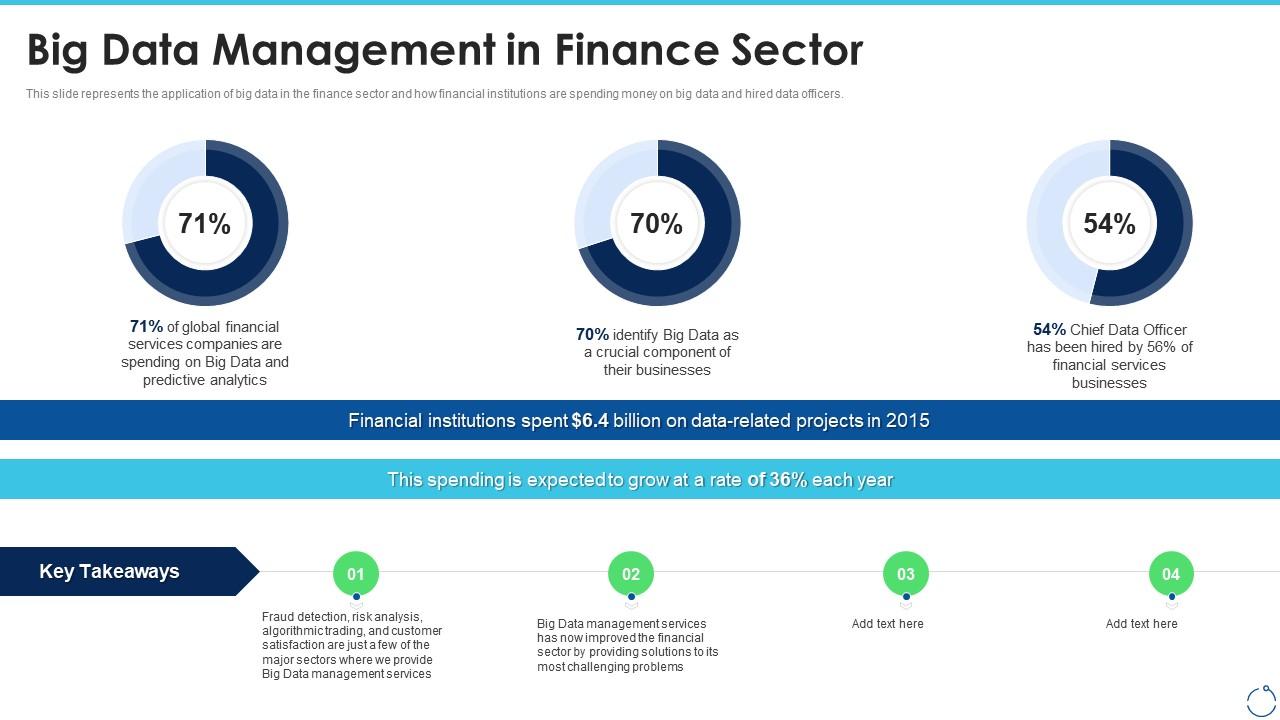
Deciphering Financial Complexity with Big Data Analytics
In the intricate realm of finance, where every decision carries weight, the advent of big data analytics has proven to be a transformative force. This article delves into the significant impact of big data analytics in the financial sector, unraveling the layers of complexity to unveil valuable insights and opportunities.
Unraveling the Data Deluge
Finance is no stranger to vast amounts of data – transactions, market movements, customer behaviors, and more. Big data analytics acts as a powerful lens, sifting through this data deluge to identify patterns, correlations, and trends that might otherwise remain hidden. It’s not just about processing data; it’s about extracting meaningful information that can drive informed decision-making.
Enhancing Risk Management Strategies
Risk is inherent in finance, and managing it effectively is paramount. Big data analytics empowers financial institutions to enhance their risk management strategies by providing a comprehensive view of potential risks. By analyzing historical data and real-time information, institutions can identify and mitigate risks proactively, bolstering their resilience in dynamic market conditions.
Optimizing Customer Experiences
In the age of customer-centricity, understanding and anticipating customer needs is crucial. Big data analytics enables financial institutions to create personalized experiences by analyzing customer behavior, preferences, and interactions. Tailored financial products, targeted marketing campaigns, and improved customer service are all outcomes of this data-driven approach.
Market Intelligence and Decision-Making Precision
Timely and informed decision-making is the lifeblood of the financial industry. Big data analytics equips decision-makers with actionable insights derived from market intelligence. Whether it’s assessing investment opportunities, adjusting trading strategies, or making portfolio adjustments, the precision afforded by data analytics is invaluable in navigating the complexities of financial markets.
Operational Efficiency Through Automation
Efficiency is the cornerstone of successful financial operations. Big data analytics, when integrated with automation, streamlines various operational processes. From compliance checks to fraud detection and transaction processing, automation fueled by data analytics reduces manual effort, minimizes errors, and enhances overall operational efficiency.
Big Data Analytics in Finance: A Catalyst for Innovation
In the quest for innovation, big data analytics serves as a catalyst. It fuels the development of new financial products and services, facilitates the creation of innovative business models, and opens doors to novel ways of addressing age-old challenges. The marriage of financial expertise and data-driven insights propels the industry forward into uncharted territories.
Real-Time Insights for Dynamic Markets
Financial markets operate at breakneck speed, and the ability to respond in real-time is a competitive advantage. Big data analytics provides real-time insights, enabling traders and institutions to make split-second decisions based on the most up-to-date information. This responsiveness is particularly crucial in volatile market conditions.
Amidst this exploration, it’s essential to recognize the pivotal role of Big Data Analytics in finance. The integration of advanced analytics tools and technologies is shaping the financial landscape, offering unprecedented opportunities for growth, innovation, and resilience.
Navigating Regulatory Compliance
In an environment where regulatory requirements are constantly evolving, compliance is a perpetual challenge. Big data analytics facilitates regulatory compliance by automating compliance checks, monitoring transactions for anomalies, and providing a transparent audit trail. This not only ensures adherence to regulations but also simplifies the compliance process for financial institutions.
Future Trends: What Lies Ahead
The journey of big data analytics in finance is an evolving narrative. As technology advances and data sources proliferate, the landscape will continue to transform. The future holds promises of even more sophisticated analytics, increased integration with artificial intelligence, and a continued push towards data-driven decision-making.
This article scratches the surface of the profound impact of big data analytics in the financial sector. As the industry embraces data-driven strategies, it will undoubtedly unlock new dimensions of efficiency, innovation, and resilience in the dynamic world of finance.